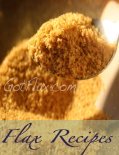Pet Omega 3 fatty acids are essential to Healthy Pets!
Introducing the Essential Fatty Acids…Essential fatty acids are critical for people + for pet's health + basic cellular function, maintenance + development. Not getting enough of these essential fatty acids is the same has having a diet lacking in vitamins + minerals. Our pet's immune systems function in much the same was as ours and the essential fatty acids are critical for prevention of sickness + disease.
Many of our pets are not getting enough Omega 3 in the pet food and the lack of Omega 3 fatty acids directly affects your pet's skin and hair as well as leading to other health problems. Just like us, pets cannot synthesize Omega 3 from other foods, they MUST get Omega 3 essential fatty acids from the food they eat -hence their name "ESSENTIAL" fatty acids (or also called essential Omega 3 oils). Pets depend on their owners to be sure they are getting the necessary amounts of Omega 3 fatty acids in their food.Why aren't enough Omega 3 fatty acids in food?Animals in the wild are able to get the nutrients they need through eating many kinds of plants and other animals. Essential fatty acids, including Omega 3s, are found in many of the plants these wild animals eat. Since animals have been domesticated, they have depended on us for their food. As more and more food -ours + our pets- is processed by large commercial companies using factory farming methods, nutrients and Omega 3 essential oils have been deficient.
Much of the processed dog-food is high in Omega 6 and deficient in Omega 3. Over the last 50 years, the ratio of Omega 6 to Omega 3 has changed from 2:1 to the present ratios of 10-20:1. This is completely out of balance due to the large amount of oils that have primarily Omega 6's (corn oil, soybean oil, cottonseed oil, peanut oil). The optimal ratio of Omega 6 to Omega 3 recommendations are ~5:1. The diets of foods high in Omega-3s such as whole grains, beans, other seeds, seafood and flax have decreased.So, Just What Are Those Omega 3 Fatty Acids? Omega 3 is a fat that is essential to the body and is a poly-unsaturated fat that won't raise cholesterol levels and has many studied benefits. There are 2 main essential fatty acids: Omega-3 alpha-linoleic acid (ALA) + Omega-6- linolenic acid (LA). The ratio for Omega 3 to Omega 6 is what is most important, and the optimal ratio is 5:1.When Omega 3 is fed to the body, the body will then convert ALA to eicosapentaenoic acid (EPA) + docosahexaenoic acid (DHA) in most species. The body then takes EPA + DHA and cyclooxygenase converts it to series 3 protaglandins that have important anti-inflammation properties. Prostaglandins also regulate cardiovascular function, hormones, and the nervous system, among other functions.
Omega 3 fatty acids are essential in cellular function and maintenance. These fatty acids have been shown to help maintain a healthy coat for dogs, horses and most cats. A lot of research has been done showing that EPA and DHA have enormous benefits in helping decrease inflammation in chronic immune + inflammatory disorders. Omega 3 oil in addition to the *****Lignans***** in Flax seed help fight inflammation.
The benefits of omega 3 fatty acids are numerous. Omega 3 Helps:-Improve Dull, Dry Skin + Hair,-Decrease inflammation-Prevent + heal Digestive Disorders,-Decrease Allergies and allergy symptoms,-Prevent Kidney failure-Heal Yeast Infections-Promote good moods + ability to learn-Stabilize blood sugars and prevent diabetes-Prevent + slow growth of cancer-Lower blood pressure and Triglycerides + Cholesterol,-Reduce risk of Coronary Artery Disease (CAD)-Protects Heart
Important Things to Remember about Omega 3 Fatty Acids for Pets:-Omega 3 Fatty acids are beneficial to most pets of all ages and breeds, especially dogs, house cats, and horses.-Even healthy pets can benefit by eating some flax seed in their food; not only will it improve their coat making it shinier, but it will help prevent chronic health problems.-Omega 3 fatty acids must be eaten in the diet because they can't be synthesized from anything else.-Have you read about Omega 9 fatty acids? They are not beneficial to good health in high amounts and if there are too many in the diet, they can decrease Omega 3 + 6 concentration in the body.-Omega 3 fatty acids are not medicines; they are found in food + an essential part of a pet's diet. They should not be used as medicines but as a healthy way to prevent sickness and help your pet's body heal itself!-What about well-known brands of pet food? Check the labels, do research to be sure that your pet's food isn't coming from factory farms where nutrients are deficient + Omega 3 is omitted so that the food won't become rancid! Also, check be sure that Omega 3 is in a stable form such as Cold Milled Flax Seed!
Is Flax seed something you need a prescription for? While Omega 3 oil capsules are at times prescribed, it is to reinforce the importance of getting Omega 3 in the diet.
Flax seed is a simply a food that used to be included as part of a normal diet, so you do not need a prescription for flax. If your pet suffers from chronic health problems, it is quite possible that they will be helped like so many other pets who have had flaxseed added to their diet; however, we always encourage pet owners to talk with their veterinarians if you have special circumstances or concerns.
What about fish and other sources of Omega 3 (ALA) fatty acids? Flax seed is 6 times higher in Omega 3 than fish.
There are many sources that high in omega-3. Some sources of Fatty Acids:* Flax (6 times richer than fish)* Kiwifruit* Chia * Wild salmon * Herring * Mackerel * Anchovies * SardinesFlax seed contains more Omega 3 than fish oil. This is especially great for those who are vegans, vegetarians or those who don't want to be exposed to toxins + Mercury that are in fish. The ALA of Omega 3 has to be converted to EPA + DHA; most people + pet's bodies are able to do this. The very few who cannot convert these to EPA + DHA, especially people + pets who are very sick or weakened, may need some fish oil or another type of EPA +DHA source in addition to flax seed.
In addition to Omega 3, flaxseed has LIGNANS and these help our pets to fight inflammation, cancer, and other health problems. Flaxseed also has soluble and insoluble fiber that prevents constipation as well as helping to fight heart disease.
What about toxicity of eating flax or reactions or allergies? Flax is a food. It is safe and there is no known toxicity reported. Here's the deal: sometimes when we eat healthy again after eating processed foods for so long, our body has to get used to healthy stuff again; we detoxify + may not feel good at first. Now, does that mean if you are feeling awful + sick, that you should keep eating flax? Each situation is so different, so I won't answer for everyone's situation, but generally I would say stop for a while + then start eating less flax. Your body may need less + that may help, but if not then as in every situation when you have health concerns, you should talk with your Physician. It is possible that you are sensitive to the type of flax seed (there are different qualities), or there could be other reasons such as the grind is too coarse or the flax is not True Cold Milled and has gone rancid!!
-Flax has been used to benefit many animals and pets: dogs, cats, horses, pigs, and poultry, among others. Flax oil was shown to help decrease rate of infection and symptoms of intestinal parasites.
Link to symptoms of Omega 3 deficiency?******Link to What are The Benefits of Flax Seed?******* Link to Health Problems of Dogs + other Pets
How to Eat Flaxseed
Flax Information
Flax for Diabetics
How Much Flaxseed
Weight Loss + Flax
Gold or Brown Flax
|
Share Your Flax Story







 |
|  |
| 